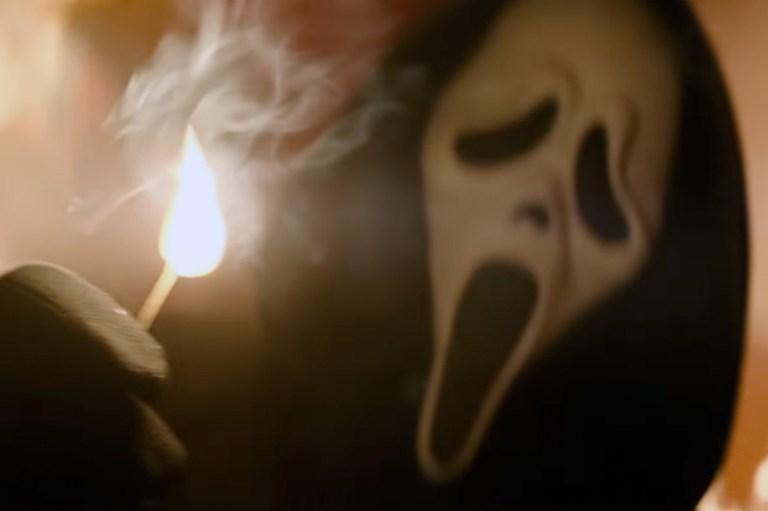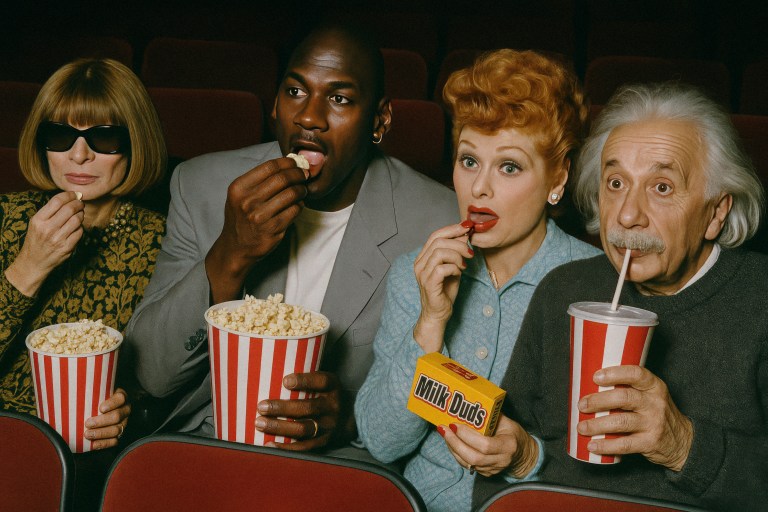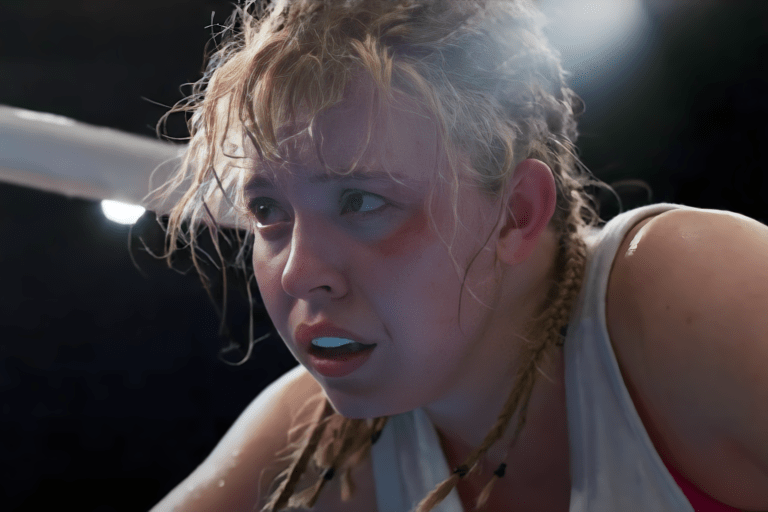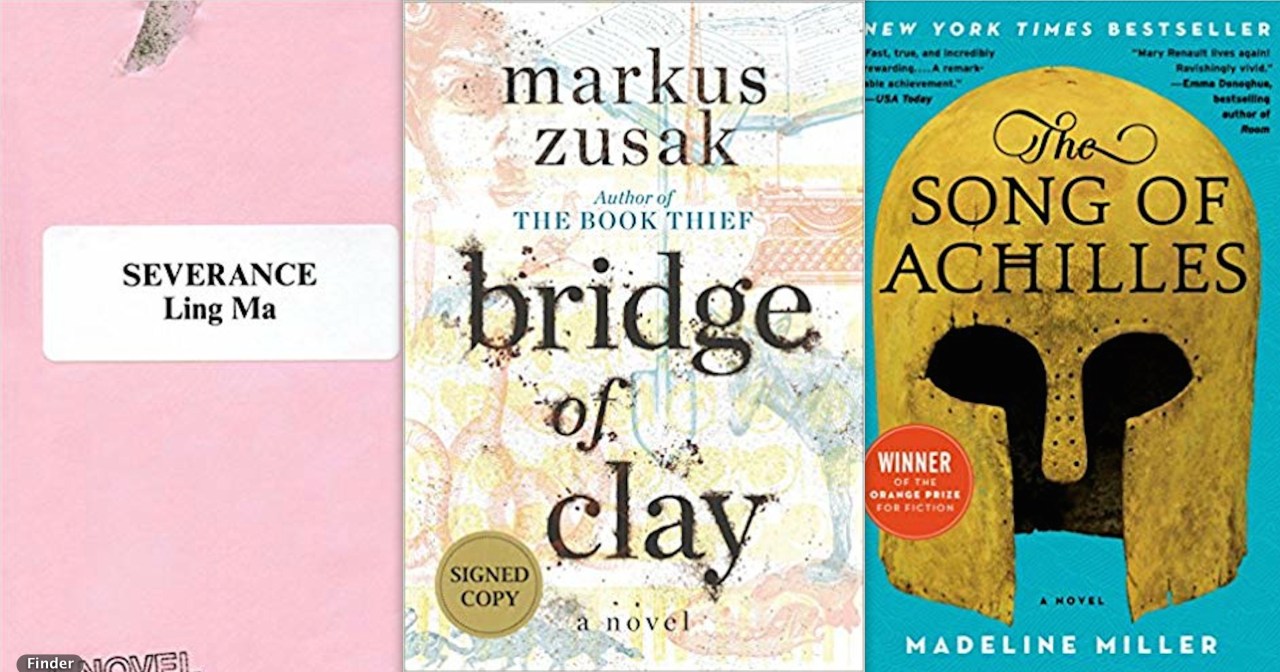
Every Book I Read In 2018, Ranked
Twenty-eighteen is the year I decided to get back into reading things I didn’t have to read, and I've never been more glad — I got to spend the year delving into a lot of fun, thoughtful books I'd never read before (and a few I just wanted to experience all over again). What better way to…
Twenty-eighteen is the year I decided to get back into reading things I didn’t have to read, and I’ve never been more glad — I got to spend the year delving into a lot of fun, thoughtful books I’d never read before (and a few I just wanted to experience all over again). What better way to end the year than rank them from best to worst?
Just as I did in my last reading list in June, I divided this list into four parts: the Great (the books I loved and probably won’t be able to forget), the Good (the books I really enjoyed but probably aren’t on my favorites list), the Okay (the books that were just fine, really), and the Bad (the books I would never, ever, ever read again). Let me know some of your best and worst books of 2018 in the comments!
Great
1. Call Me By Your Name by André Aciman
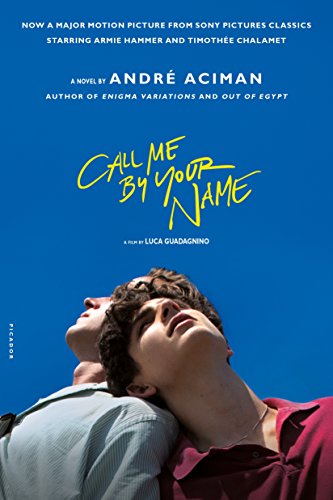
I actually first read this book in 2017, but I loved it so much I read it again this year. It follows 17-year-old Elio, the son of a professor, who finds himself drawn to their family’s houseguest for the summer, a grad student named Oliver. From the moment Oliver comes into his life, Elio can’t seem to stop thinking about him, quickly slipping into a haze of desire over a man he doesn’t think he can have. I wouldn’t call this book your average love story. It’s about a young man exploring his sexuality, both with a woman and a man, while grappling with the expectations instilled in him by a heteronormative culture. His obsession with Oliver may become tiresome to some, but to those of you who are like me, it feels painfully relatable. But what really puts the book at the top of my list is how author André Aciman manages to capture the feeling of first love, desire, and desperation through words. This book shattered my heart into a million pieces and still made me want more. And that, in my opinion, is the sign of a great book.
2. The Song of Achilles by Madeline Miller
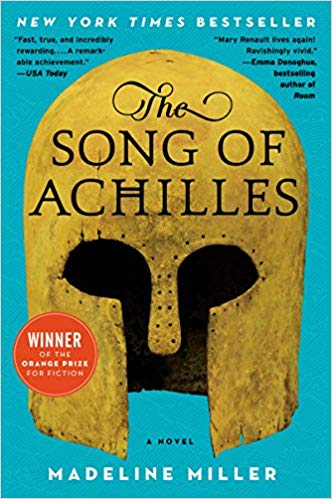
I’m not sure why I waited so long to read this — the moment I heard it was about, I knew I’d love it. Trust me, I wasn’t disappointed. The story follows Patroclus, a young awkward prince during Greece’s age of heroes, and Achilles, the legendary warrior or the Trojan War, from the early years of their friendship, through their deepening relationship, right to their tragic end. Miller transforms this well-known myth into a heartbreaking epic that somehow feels less like a retelling and more like a creation of her own.
3. The Princess Bride by William Goldman
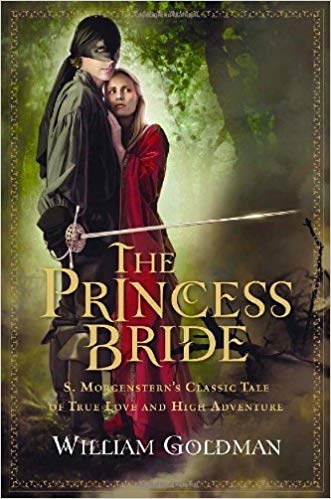
I grew up reciting lines from the 1987 film by heart, but for some reason I never got around to picking this book up until Goldman’s death in November. What a fool I’d been — it turns out the book is somehow more witty and engrossing than the beloved movie. (But don’t worry — you’ll see plenty of the movie in it, too.) This satire is full of vapid caricatures that will leave your belly aching from laughter one moment and your heart swelling from their beauty the next. If you like fencing, torture, treachery, revenge, good men, bad men, passion, miracles, and true love, this may be the book for you.
4. Circe by Madeline Miller

Something about the island goddess Circe, which you may remember from The Odyssey as the witch who turned Odysseus’s men into pigs, has always intrigued me. This retelling of her story will only make you love her more. What’s so fun about this book is that you’ll recognize so many of the tales it tells. Miller weaves together classic Greek mythology into a story that feels fresh and new, and yet, as if they were old friends, I still found myself excited to see Hermes and Odysseus and the Minotaur. But my favorite character of all, of course, was Circe herself. Miller crafted her character with a loving hand, breathing a new life into the witch that you couldn’t help but feel for. She is strong but vulnerable, principled yet flawed. She evolves drastically throughout the book, and yet the transformation feels seamless. She is exactly the kind of character to champion the modern woman: someone who is a fighter, who learned to stand on her own two feet, who has been the victim of an unjust world and found herself a worthy heroine all the same.
5. The Bell Jar by Sylvia Plath
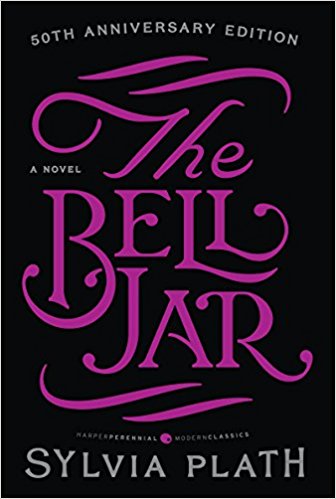
The Bell Jar is obviously dated — it was published in 1967 — but so many of the topics Plath covers feel timely. Heroine Esther Greenwood laments how differently society treats men and women, especially concerning the double standards in sex and relationships, and how infuriating it can be when all you want is to be held to the same standards. It also explores the psyche of a person struggling with depression and suicide ideation and how prevalent the thoughts can be, even if everything is seemingly going well on the outside. (This theme seems especially timely after the suicide of the wildly successful Kate Spade.) It helps that Plath’s prose is so poetic you’ll find yourself feeling more for Esther than you expected, despite not always being the most likeable character. In the era of #MeToo and mental health awareness, this book is a must-read.
6. Bridge of Clay by Markus Zusak
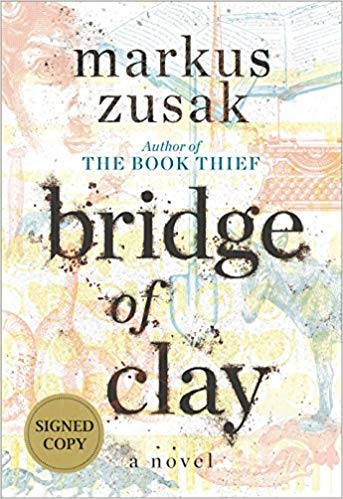
Zusak has been my favorite writer since high school, so when I heard he was coming out with his first book in over a decade, a pre-ordered it immediately. And I wasn’t disappointed — this book definitely has the Zusak touch. The story follows five brothers who help raise each other after their mother dies and their father mysteriously disappears, and how one brother specifically fights to put their world back together.
7. On Writing by Stephen King
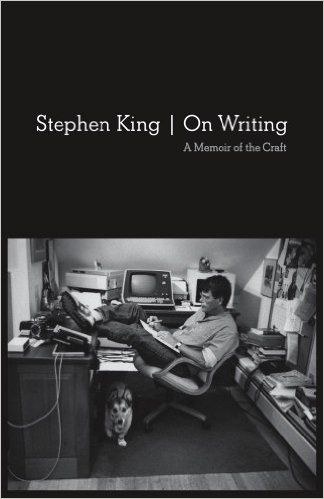
I have a confession to make: I’d never actually read a Stephen King book before this one. But everyone said this was a must-read for writers, and I finally see where they’re coming from. This memoir-slash-writing-guide gives us an insight to how Stephen King began his career as a kid writing short stories for his mother for a quarter apiece and later became one of the most commercially successful authors of all time, but it also offers writers the helpful tools they need to take the first steps into the world as novelists.
8. Fahrenheit 451 by Ray Bradbury
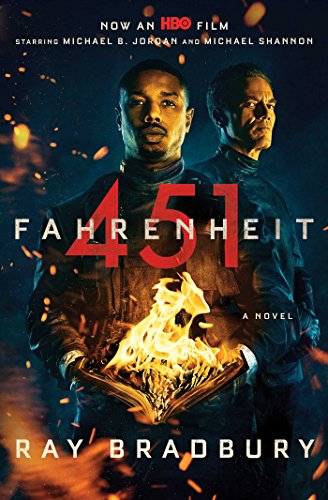
I first read this when I was thirteen years old, but I honestly couldn’t remember too much about it besides the premise, so I thought I’d give the book another go. I’m so glad I decided to reread it, because I think there are a lot of nuances to Ray Bradbury’s prose that I overlooked when I was a teenager. I found the characters more relatable and the plot more speculative than fantastical, though I’m not sure if that’s because of my age or because of the time I live in. In fact, one key thing had changed in real life since the first time I read it: the prevalence of smartphones and our obsession with staying connected. The danger presented within the pages felt more realistic. If you haven’t picked up the book before, or if you haven’t in a long time, I urge you to give it a try. It touches upon the danger of a society distracted by the circus that is the entertainment sector, of a world where facts and information lose their power. This book is more important now than ever.
9. The Idiot by Elif Batuman

If you’ve ever found yourself stumbling through a new chapter of your life, this may be the book for you. Selin leaves for her first year of college at Harvard and realizes she has no idea how to maneuver this new life, full of classes, new friendships, and a first love that is as heartbreaking as it is fulfilling. Perhaps that’s why she decides to jump on a plane during summer break to travel the world, hoping she’ll find the answers to life in a new language, but instead realizes that she has more questions than she ever had before. Author Elif Batuman writes about the woes and wonders of being 18, an adult but still just a kid, as if she remembers her own experiences vividly. And it reminds me so much of my own confusing life as a college freshman that Selin and The Idiot will always have a special place in my heart.
10. Eleanor Oliphant Is Completely Fine by Gail Honeyman
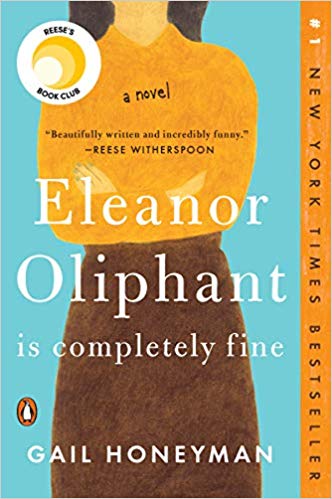
Eleanor Oliphant struggles with social conventions and has trouble realizing that while she sees the rest of the world as strange, they see her the same way. She forgoes social interactions for her strict schedule of work, frozen pizza, vodka, and phone chats with her mother, but everything changes when she meets Raymond, the IT guy at her office, and Sammy, an elderly man the two save one unexpected afternoon when he collapses on the sidewalk. It isn’t until Eleanor begins letting people into her life that she begins to understand what she’s been missing, leading her to finally step out of her comfort zone and into the real world.
11. My Year of Rest and Relaxation by Ottessa Moshfegh
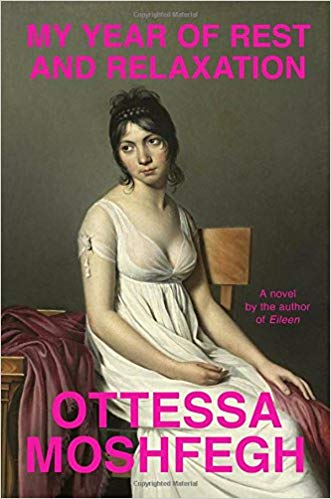
It’s the year 2000 and the young, thin, pretty protagonist decides she needs a break from life. No, not some free time, but an actual non-conscious period of time so she won’t have to think of anything at all. She experiments with a narcotic hibernation, thanks to her quack psychiatrist who hands out pills like they’re candy. This book is bizarre, raw, and darkly funny — and I loved every minute of it.
12. Sorority by Genevieve Sly Crane
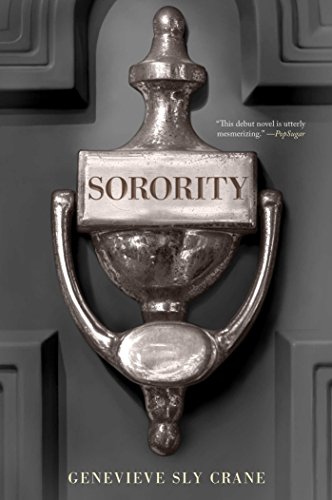
When Margot dies, she leaves her sorority sisters’ lives in disarray, and some never truly recover. Of course, even aside from Margot’s death, each sister has something they’re struggling with — depression, eating disorders, family pressure, pregnancy. Though you’ll only see slivers of their lives, you won’t help but to feel empathy toward them, or, at the very least, intrigue. This book isn’t a thriller but a character study that delves into the lives of each sister, some who are cruel, others who are misunderstood, and all who are deeply relatable. Genevieve Sly Crane gives readers an inside look into what goes on in the exclusivity of a sorority house and the bonds it builds — and sometimes breaks.
13. Severance by Ling Ma
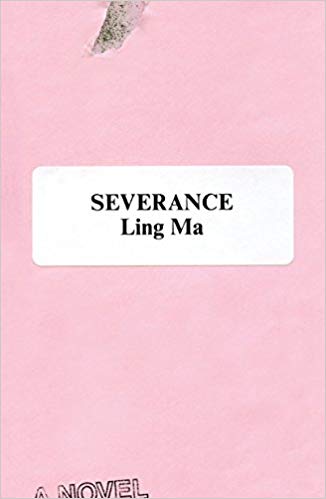
What happens when the apocalypse hits, but you hardly even notice at all? This is how it goes for 20-something Candace Chen, a workaholic who’s so head-deep in her own routine that she barely even takes a moment to realize that the world around her — or, more specifically, New York — has been invaded by a mysterious disease that leaves most of its inhabitants zombie-like and rotting alive. This satire is an eye-opening look at American culture and the jaded nature of burnt out Millennials.
14. Aristotle and Dante Discover the Secrets of the Universe by Benjamin Alire Sáenz
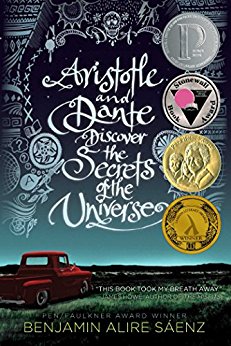
Aristotle and Dante are both loners when they meet. They would still be loners afterwards, too, if Dante didn’t decide that the two were going to be best friends. Together, the pair learn truths about themselves and who they want to be, as well as who they are to one another, and as a reader, you’ll feel privileged to be along for the ride. This book is beyond sweet, and the characters are crafted with so much love that you’ll ache for them the whole time. There’s something about the unlikely friendship between angsty, brooding Aristotle and soft, thoughtful Dante that melts my cold, cynical heart. This is a coming of age story. It’s also a love story. If you want a book that’s quiet, thoughtful, and so incredibly lovely, this might be the one for you.
Good
15. The Pisces by Melissa Broder
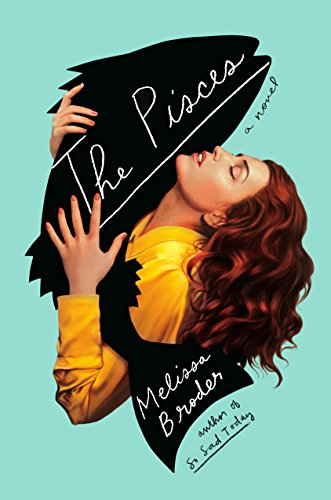
Lucy moves to Venice Beach to housesit for her sister of the summer after she inadvertently breaks up with her longterm boyfriend and her life falls apart. For the most part, it should be easy — she just has to take care of her sister’s dog, Dominic, and attend weekly group therapy sessions. But Lucy soon finds herself going on a series of dates with men she doesn’t particularly care for, all the while searching for something that can make her feel whole. That is, until she meets Theo, a mysterious swimmer who always seems to find her sitting on the rocks at night. And who, she soon finds out, might actually be a mythological creature. Lucy is selfish and at times insufferable, and while it can be a bit to handle at times, I have to give it to Melissa Broder for creating a character that isn’t usually included in literary narratives — but who you almost definitely have met in real life. While there are plenty of moments where this book made me cringe or feel queasy (it’s pretty graphic at times, and I am weak), I can’t help but look back at the story as a whole and think it was brilliant.
16. Calypso by David Sedaris
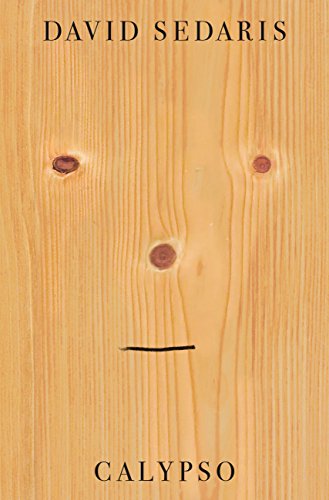
I’d actually never read a David Sedaris book before this one. I’ve read some of his writings on the Internet and thoroughly enjoyed them, and I was delighted to find I felt the same way about this short memoir. Sedaris is laugh-out-loud funny and manages to take an in-depth look at growing old and mortality without actually getting depressing. Do you know how big of a feat that is? Instead of dreading my own existence, I found myself relieved that Sedaris could approach the same heavy topics that plagued me with a sense of humor that almost made them feel weightless. Sometimes you just need to laugh about serious topics and not feel bad about laughing, and Sedaris lets you do this in the comfort of your own home.
17. The Incendiaries by R.O. Kwon
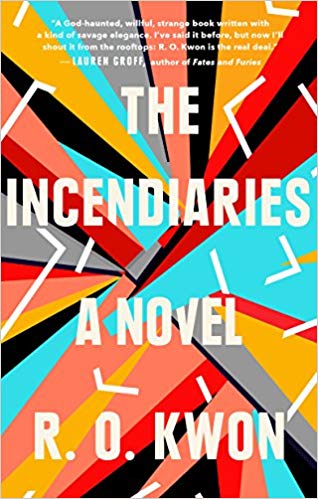
Phoebe Lin and Will Kendall meet in the early months of university and quickly fall in love. Phoebe secretly blames herself for her mother’s death and Will’s still reeling from his fallout with organized religion, but the two seem to just work. All of that changes, though, when Phoebe finds herself drawn into a secretive extremist cult, run by a charismatic leader who seems to open something up inside of her. When several bombs go off in the name of the cult and Phoebe disappears, Will sets out to find her, all the while trying to understand how the woman he loved could have gotten so wrapped up in such a terrible thing.
18. Simon vs. the Homo Sapiens Agenda by Becky Albertalli

Simon Spier is a normal kid with one huge-ass secret: he’s gay, and he hasn’t told anyone. Not even his parents, not even his closest friends. But he’s been corresponding through email with the mysterious Blue, another gay teen from his school who he found online, and he thinks he might be falling for him, but there are a few problems: Blue won’t disclose his true identity, and Simon maybe-sort-of-definitely is getting blackmailed by a classmate who threatens to out both him and Blue in the process. Simon vs. the Homo Sapiens Agenda is like a ‘90s teen rom com in novel form. Of course, it covers a lot of ground most ‘90s teen rom coms didn’t — like coming out and the stigma surrounding homosexuality — and, you know, isn’t set in the ‘90s. I couldn’t help but fall in love with the funny, nerdy Simon and his confidante Blue. This book is funny, thoughtful, and incredibly heartwarming — and is 100 percent the most feel-good book I’ve read in years.
19. Little Fires Everywhere by Celeste Ng
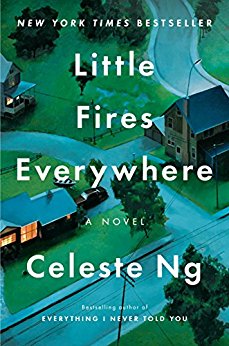
In Shaker Heights, a progressive suburb of Cleveland, the residents praise diversity — at least, if it’s the right kind. Mia Warren is certainly not that. The nomadic artist is eclectic and unlike most of the other inhabitants at Shaker Heights, but she manages to fly under the radar — that is, until her daughter, Pearl, finds herself tangled in the Richardson family. Elena Richardson finds herself drawn to the enigmatic artist, but when Mia disregards the status quo and finds herself on the opposing side of a community issue, Elena is dead set on unearthing Mia’s secrets, the ones she’s hiding from everyone in Shaker Heights — including her daughter. This book was definitely an enjoyable read, with a twist at the end I didn’t see coming at all. By the time you get to the satisfying end, you’ll be glad you gave the book a chance.
20. Where’d You Go, Bernadette by Maria Semple
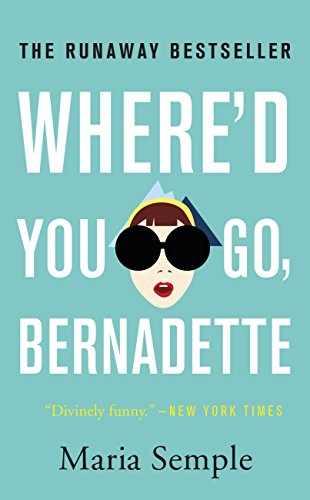
When Bernadette Fox disappears just days before her family creation, her 15-year-old daughter Bee is left to piece together the story of what went wrong. Told primarily through emails, newspaper clippings, and other documents, Bee begins to understand who her mother truly is outside of just being her parents. This is a touching story about family and societal pressures, and I found myself so engrossed in the mystery that I read the book in nearly a day. There’s a reason this book was so popular when it was first published — it’s highly enjoyable, told in a way that’ll make it hard to put down.
21. Code Name Verity by Elizabeth Wein
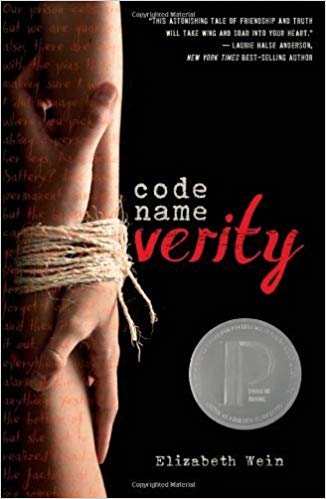
When a British spy plane crashes in Nazi-occupied France, it’s the beginning of the end for its inhabitants — a pilot and a secret agent, who just so happen to be best friends. The secret agent, “Verity,” gets taken by the Gestapo and is given two choices: either reveal her mission or face her own death. As Verity writes down her confessions, she manages to weave the story of her past into it, giving us the full story of when she met the pilot, how they became friends, and their last moments together before the crash.
22. Big Fish by Daniel Wallace
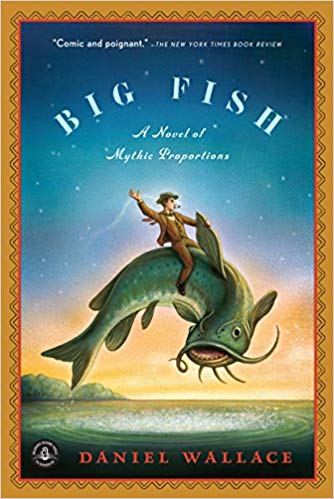
Big Fish tells the story of Edward Bloom, a larger-than-life man as he lays dying on his deathbed. But it’s not the way he lived that made his life so extraordinary — on the contrary, it’s the stories he told along the way. Hilarious and gut-wrenching, these tales help Edward’s son finally put together a portrait of who is father truly is, even if that’s just a really big fish.
23. Dept. of Speculation by Jenny Offill
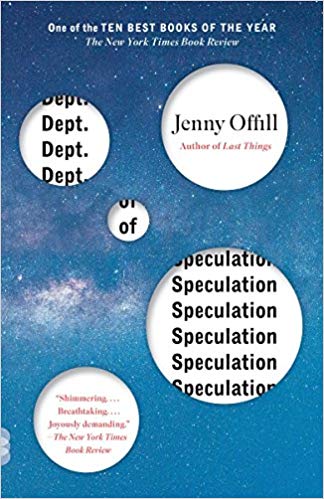
This book is the portrait of a marriage, as told by the unnamed wife. Through its poignant, poetic prose, it tells a story about falling in love, intimacy, trust, faith, doubt, heartbreak, and every feeling in between. But in the end, it’s not the plot that keeps you hooked — it’s the writing. Rarely will you pick up a novel as beautiful and heart-rendering is this.
24. Leah on the Offbeat by Becky Albertalli
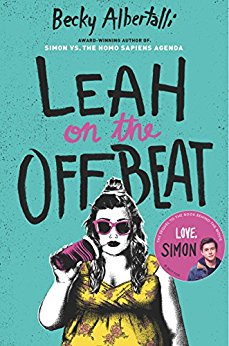
The sequel to Simon vs. the Homo Sapiens Agenda focuses on Simon’s best friend Leah, who has a pretty big secret, too: she’s bisexual, and she hasn’t told anyone but her Mom. Not even her gay best friend. It only gets worse when she finds herself falling for one of her best friend’s prom dates instead of her own. Even worse because her crush is a girl and definitely doesn’t know that Leah is bisexual. Right? Leah maneuvers her crush while also maneuvering the last of her senior year of high school, fighting her romantic feelings all the while fighting the dread that comes as another life chapter comes to an end. This book reminded me of what it felt like to say goodbye to high school and prepare for adulthood, as well as the excitement — and anxiety — of first love. Not only is it great to get bi exposure in a young adult book, it’s also great for fans of Simon who want to spend just a little more time with their favorite characters in Shady Creek.
25. One Day In December by Josie Silver
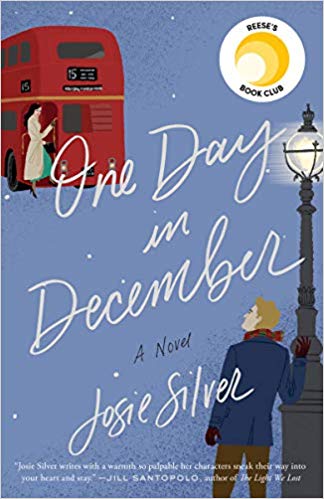
If you’re into rom coms or, at the very least, Love Actually, you’ll love One Day In December, the story of a man and woman who can’t stop thinking of each other after a missed connection at a bus stop and the ten years that unfold after that one fated day. Is love at first sight real? Is there such thing as The One? This story may not have any definitive answers to these questions, but it does remind us that timing is just as important as love, even when there’s no such thing as the perfect time for something.
26. Sadie by Courtney Summers

Not long after a young girl is found dead in her small town, her older sister goes missing — but not before unintentionally leaving a trail of clues behind her. Enter Wes McCray, a radio personality who becomes obsessed with these sisters’ story and decides to crack the case on his Serial-like podcast. The chapters alternate between Wes’s podcast transcripts and teenage Sadie’s journey of revenge, weaving their stories together to paint a picture of the horrors girls face in the world — and the world’s strange fascination with the girls who fall victim to them.
27. The Power by Naomi Alderman
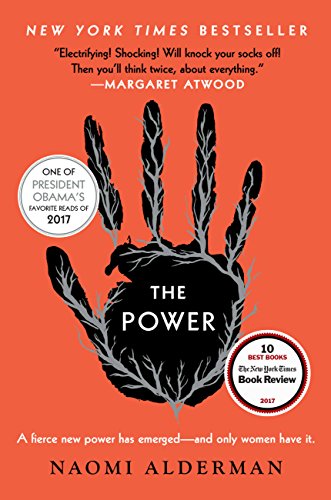
When young women all over the globe wake up one day with the strange ability to hurt — and even kill — people right at their fingertips, the world finds itself flipped upside-down. For the first time in history, men seem more afraid of women than women are of them. But as women all around the world learn just what they can do with their new power, societies begin to see the dark downside of what happens when, instead of achieving equality, the power structure is suddenly skewed in the opposite direction. This book would do well with fans of The Handmaid’s Tale and should definitely find its way onto any feminist’s reading list.
28. The Bluest Eye by Toni Morrison
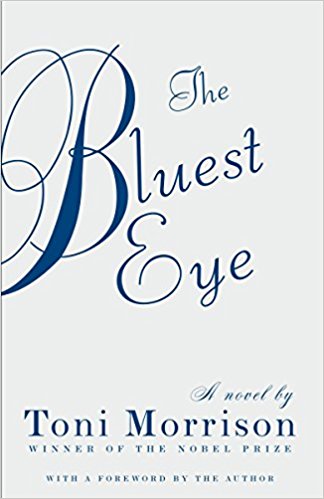
Eleven-year-old Pecola Breedlove lives in Lorain, Ohio in a time when being a black girl is considered to some to be a curse, including Pecola herself. She prays for her eyes to turn blue so she can be as beautiful and beloved as her blue-eyed, blond-haired classmates, but instead she finds her life changing in many real — and very painful — ways. This book is incredibly hard to read (not because of the way it’s written, but because of its subject matter), but it’s powerful. No wonder it’s become a beloved American classic.
29. Florida by Lauren Groff

Lauren Groff’s anthology of short stories is stunning. Each story is crafted beautifully; Groff is an expert at molding language in the palms of her hand. The characters are different genders, different ages, living in different decades, and yet one thing is always the same: the state of Florida always plays a role, not only as a theme, but almost as a character itself. Groff writes of the horrors of the world and the harsh realities we often try not to face, often in the dangerous backdrop of the Floridian wilderness. Some of these stories will definitely stick with me long after I put the book down (Yport is one of them), while others I know I’ll revisit later without the memory of reading them at all.
Okay
30. The Year Of Magical Thinking by Joan Didion
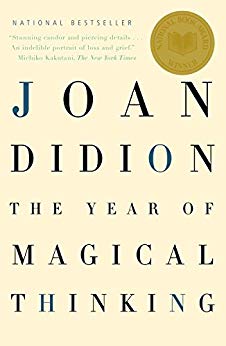
Joan Didion explores grief on an intensely personal level in this memoir. Written soon after her husband suddenly died and her daughter battled with an unexpected illness that threatened to take her life, it’s no surprise that Didion felt it was necessary to destruct her own sense of loss and confusion about how the rug can be pulled out from under you so quickly. In fact, much of the book reflects on the earlier, happier days, when Didion’s marriage was thriving and her daughter was just a little girl. However, while I enjoyed this book and deeply sympathized with Didion (I can’t even imagine what that would be like), I think I didn’t fully appreciate it because Didion’s mindset while overcome with grief was so different than my own. Instead of the intense emotion I thought I’d feel, Didion approached the situation in a methodical way, writing her thoughts down succinctly. There’s no doubt Didion is a great writer or that this book will inevitably change some people’s lives. I just don’t think that person is me.
31. Sex Object by Jessica Valenti
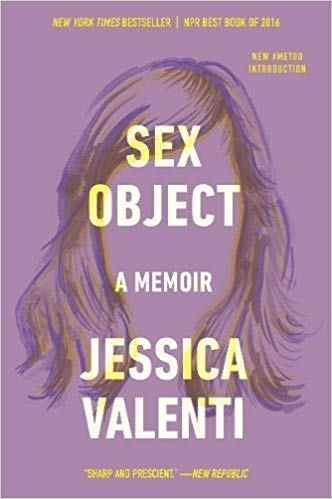
This darkly funny memoir isn’t just about Jessica Valenti’s life, but of the sexism she’s fallen victim to since childhood. These painful, uncomfortable, and oftentimes funny memories are may belong to Valenti, but many feel like they belong to all of us — their so relatable that nearly any woman can put themselves into her shoes. If you’re looking for a good feminist read, make sure you don’t overlook this one.
32. P.S. I Still Love You by Jenny Han
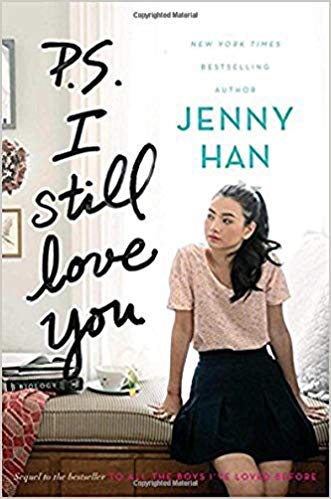
This book was hard for me to rank, because honestly, I loved it. I breezed through it within a few days and felt like I’d become best friends with protagonist Lara Jean by the time I was done. It starts exactly where To All The Boys I’ve Loved Before leaves off, with Lara Jean unsure about what comes next with heartthrob Peter Kavinsky now that their relationship contract is officially void. But while the feelings between the two are undoubtedly real, there are also a lot of very real problems the two must face that they never imagined while in their fake relationship, including conniving exes and a resurfacing past love interest. It may not be a literary masterpiece, but it’s sure to fill the rom com void in your heart.
33. Always and Forever, Lara Jean by Jenny Han
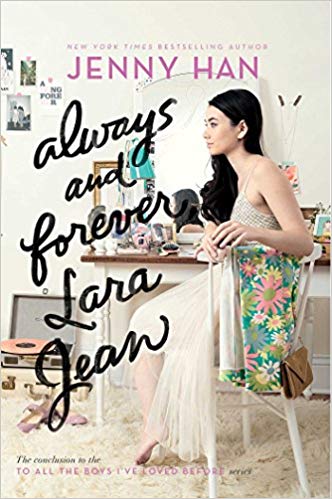
The final book in the To All The Boys I’ve Loved Before trilogy was perhaps my least favorite of the three, but that doesn’t mean I still didn’t love it. Things are finally starting to settle for Lara Jean (i.e. no more relationship drama) right when her life starts to become uprooted again — this time due to college, which is looming in the distance. Lara Jean wants to make the most of her senior year with Peter Kavinsky, but it’s grows harder and harder for her to stay focused on the present when the future is starting to look more and more hazy. It’s a nice, cozy ending to a nice, cozy YA series.
34. The Sun Is Also A Star by Nicola Yoon
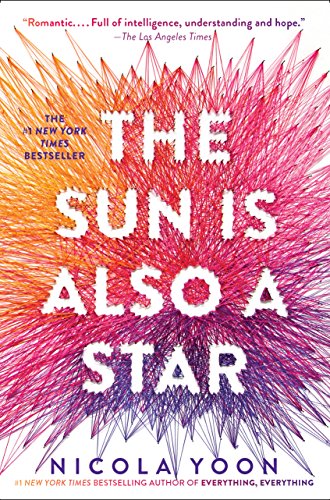
Natasha meets Daniel on the worst day of her life: the day her family is getting deported back to Jamaica. Daniel meets Natasha on the most important day of his life: the day he has his interview for Yale. Natasha is deadest on changing her fate, while Daniel is sure their meeting is fate. But that’s another big difference between the two: Natasha is a realist, and Daniel is a dreamer. Throughout the course of one long, chaotic day, the two find themselves slipping into a romance that was doomed from the start. This book is definitely great if you want a quick, cute read. Is it life-changing? I wouldn’t go that far, but I thoroughly enjoyed every moment of the day Natasha’s and Daniel’s lives changed forever.
35. Difficult Women by Roxane Gay
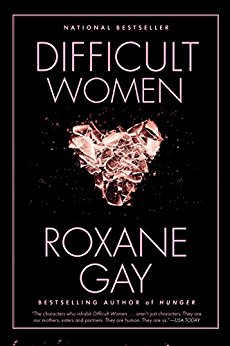
This anthology of short stories centers on women who are “difficult”: those who cannot bring themselves to love, those who have been abused, those who are not appreciated by their loved ones, those who see themselves as wasted space. Each story focuses on a different woman and a different story, though by the end, they had all melded into one character in my mind. The problem is that while Gay is an amazing writer, her stories were so similar that I felt like I was reading the same one over and over again, each revealing little more insight than the one before it. It didn’t bother me that many of these stories were bleak and depressing, but it did bother me that they were often bleak and depressing in the same ways. As a result, most were unmemorable. But if you don’t plan to read the full book in one sitting, it still might be worth picking up. Read apart from one another, I think these stories have the potential to pack a punch.
36. Vox by Christina Dalcher

The premise here is beyond intriguing — after all, Vox is set in a near future where the women of America are silenced completely, thanks to a religious extremist in the government and a new government decree that restricts women from speaking more than 100 words a day. Dr. Jean McClellan is still in denial, but that doesn’t stop her from doing what she can to fight against a government that despises her very existence — all the while needing her for one final experiment. The book is a great conversation starter, especially for book clubs, but unfortunately, Vox doesn’t live up to its hype. Not only is Dalcher unable to make the plot believable, but the conclusion comes so quickly that you’ll end up feeling cheated.
37. Ghosted by Rosie Walsh
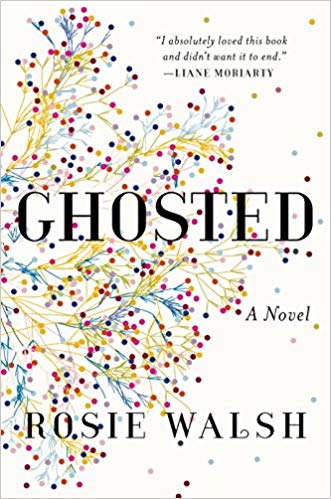
Ghosted had an interesting premise — Sarah and Eddie meet and fall in love nearly instantly, but after their whirlwind week together, Eddie falls off the face of the earth. Could it be? Has Sarah been… ghosted? But Sarah’s sure that Eddie wouldn’t just disappear on her and is positive that something must have happened to Eddie, even if she can’t put her finger on what. This is a fun, fast-paced mystery with one whopper of a plot twist (seriously, I did not see that coming), but when I put the book down at the end, I couldn’t help but be a little disappointed. It’s one of those stories that just ends too perfectly, to the point where you can’t help but feel that the whole thing was nothing but fan service.
38. The Book of Essie by Meghan MacLain Weir
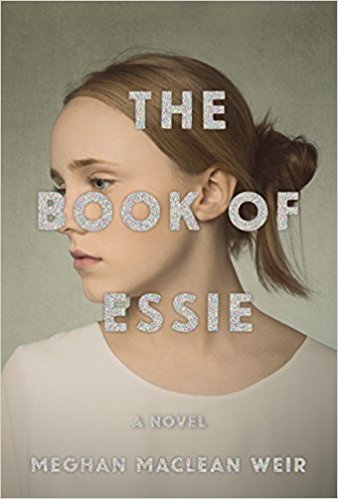
I wanted to love this book. So many other people seemed to. After all, it covered such an interesting topic: specifically, the life of a Essie Hicks, a teenage girl who grew up on an immensely popular reality TV show a la The Duggars. Essie’s uber religious family isn’t as perfect as it appears on TV — once the cameras turn off, it’s back to plotting what will bring in the highest ratings. So when it’s revealed that the unwed Essie is pregnant, there are only a few options her mother is willing to entertain: do they sneak her out of the country for an abortion, pass the child off as her mother’s, or throw together a blockbuster wedding and say the child was born prematurely? But even with all the things the plot had going for it, the book itself fell short for me — the characters never felt fully fleshed out, the multiple viewpoints were difficult to discern from one another, and the plot twists seemed predictable. I think this is the perfect book for someone out there — just not me.
Bad
39. Diary Of An Oxygen Thief by Anonymous
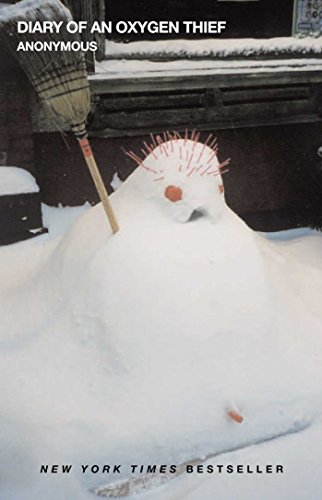
This book is the (supposedly) firsthand account of an Irish advertising executive who receives pleasure by emotionally abusing women. “Hurt people hurt people,” the book reads, but as the narrator begins to attend AA and sobers up, he begins reflecting on how he treated his past relationships. While he claims to regret the way he treated women in the past, the way he describes it somehow says otherwise. It doesn’t help that he’s incredibly arrogant, often self-congratulatory despite his own self-loathing, and the way he often digresses from the prose to mention that he’d be surprised if the book even got published grows incredibly boring by the third time. In the end, when you learn he’s writing the book almost as an act of revenge from being wronged by someone who takes the same pleasure hurting men as he did women, the whole entire thing just feels tainted. Is the author a great writer? Sure. I just wish he would have written a different story.
40. A Lite Too Bright by Samuel Miller
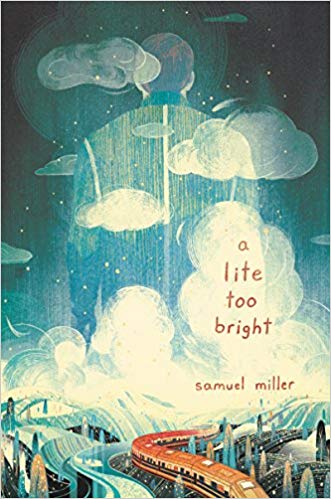
I picked up this book without knowing much about it, but it sounded like a fun read. After all, it revolves around the grandson of an acclaimed writer and his journey to piece together the clues his grandfather left behind after his death, which includes a cross-country train ride. If I’m being completely honest, I don’t remember much more about it, despite finishing it in September. I was, to say the least, unimpressed.
41. How To Be A Woman by Caitlin Moran
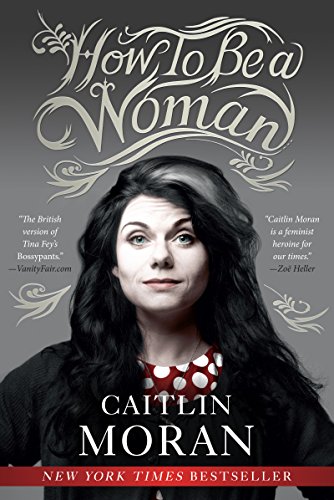
This book is part-memoir, part-manifesto for women hoping to understand feminism. Author Caitlin Moran delved into her quirky, sometimes-humiliating adolescence with a sense of wit and self-deprecation I could definitely appreciate. Unfortunately, this is probably the only part of the book I truly liked. Instead of feeling empowered by Moran’s feminist revelations, I found myself rolling my eyes. This may have fared better in the hands of someone exploring the idea of feminism for the first time, but even then it seems ignorant. Moran suffers greatly from the dreaded White Feminism, often describing womanhood from the narrow lens of her own experiences without acknowledging the fact that others don’t come from the same privileges and backgrounds. In the hands of a non-white, non-heteronormative person, this book would feel deeply unrelatable. Even in mine, it seemed deeply flawed. It definitely didn’t help that she often TYPED LIKE THIS! If you’re a fan of Moran, this piece of work may be worth it for her narrative alone. Otherwise, you may want to just leave it on the shelf.
42. A Sucky Love Story: Overcoming Unhappily Ever After by Brittani Louise Taylor
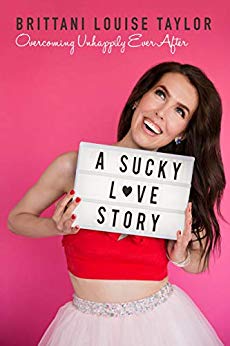
I feel terrible rating this book so low, if I’m being honest. After all, this YouTuber’s memoir chronicles her abusive relationship with a man who is, to put it frankly, a straight-up psychopath. I can’t imagine going through what Brittani did, and I really hope this book will ensure that some women will never have to. But at the end of the day, this book was not well-written. There were too many irrelevant sidenotes, too many boring rants, too much exposition that didn’t matter. I think Brittani’s story is worth telling — what actually happened was insane — but it also needed a lot more editing before I’d consider it presentable. Brittani said herself in the book that she isn’t really a writer — the editor probably should have taken that more seriously. ![]()

